Techmeme's top-50 tech stories show the influence of Apple, Google and corporate blogs and press releases
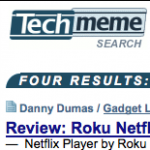
This afternoon, Techmeme published its top-50 tech stories of the year. What's crazy is how few of them are actually news stories. Twenty-one of the top 50 are either tech company blog posts or press releases -- that means corporate issued. Six of the top 10 stories came directly from companies, such as Apple CEO Steve Jobs' "Thoughts on Flash" (ranked No. 2) or Andy Rubin's Google blog post about the changes in Nexus One availability (No. 4). The list says something about the tech news you read and who really influences it.
Take for example Rubin's post on Nexus One. Many tech blogs or new sites are still calling Nexus One a failure (I'm not one of them). But clearly somebody was interested in the Google smartphone for it to rank in Techmeme's top 5. Nine Google blog posts appear on the list -- get this -- four in the top 10. Two are about Google's search policy changes in China. With all talk about Apple, Google's influence shouldn't be underestimated -- at least as measured by Techmeme. Including actual news stories, Google makes the list 13 times.
10 for 2010: Apple stories that mattered
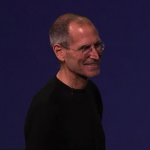
My last set of year-end retrospectives surprises me, and some Betanews readers may feel the same. Many commenters accuse me of shilling for Apple, of being a fanboy, which I always dismiss. But in looking over my own Apple posts over the last year, I see just how biting are the topics or analyses and wonder what are these fanboy claimers reading. As a group, the posts are insightful -- even though some Macheads' blog rebuttals will assert otherwise. From some one in the Mac camp will come the PC fanboy accusation, which also is untrue.
Unlike the top-10 story lists for Google and Microsoft, this one is more thematic, in part because of CEO Steve Jobs' incredible visible influence over Apple in 2010, following a media leave due to liver-transplant surgery in 2009. One of the best ways to understand how Apple operates and where it's going is to understand the mind of Jobs. He gave unusual opportunities to do just that this year. Among the top-five stories on this list, four are specifically about him.
Should Apple stop selling software in its retail stores?
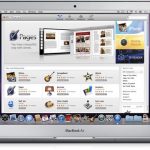
It's the question to ask with the Mac App Store launching in one week. Software takes up valuable shelf space Apple could use for other things, particularly in many of its smaller boutique-sized shops. I've asked Apple PR if the company plans to stop selling software at its retail stores but received no answer before posting.
Apple is notorious for pulling the plug on something and pushing the consumer market forward, whether or not it's ready to move. I remember when in 1998, with launch of the Bondi Blue iMac, Apple removed legacy ports, shifting to FireWire and USB. A decade later, Apple ditched the internal optical drive on the original MacBook Air. The newer model replaces the hard drive with solid-state storage. There are many other examples and some quite displeasing to consumers, when Apple releases something new incompatible with what its customers already have.
iPhone 4 vs Nexus S: Which smartphone is right for you?
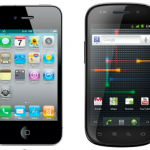
Six months after moving to Apple's smartphone, I'm back on Android. On December 17, I bought the Samsung-made Google Nexus S from my local Best Buy. Days later, my iPhone 4 sold on eBay for $575, which will cover my early termination fee with AT&T and some of the new phone's cost. Like any other tech purchase, I did research beforehand but couldn't find what I most wanted: iPhone comparison to Nexus S reviews -- Apple's flagship smartphone to Google's superphone. After nearly two weeks using Nexus S, I'm ready to offer some experiential comparisons for other shoppers.
To be clear, I wasn't dissatisfied with iPhone 4. On the contrary, I was hugely satisfied with the phone and the user experience. Apple's smartphone feels solid to hold, offers breathtaking display and shoots pleasing photos and videos. With the exception of ongoing Bluetooth earpiece problems, iPhone satisfied -- perhaps too much. Psychologists say that marriages often break up not in a flurry of anger or arguments but silence. Two people drift apart, one day realizing they have little left in common. That sentiment in some ways describes my feelings about iPhone 4. Three-and-a-half years after the original phone launched, the iOS user interface is pretty much the same. The UI feels stale, uninviting and too PC-like. I love the hardware, but no longer pine for the software.
What does Paul Allen need to win his patent lawsuit against Apple, Facebook? Texas
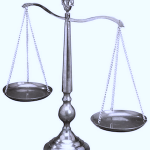
Microsoft cofounder Paul Allen really needs a lesson in how to effectively file and win patent lawsuits. For starters, you don't file them in a Washington State federal court. Other patent plaintiffs seem to get what Allen doesn't: You file in East Texas, in what is affectionately or unaffectionally called -- depending on which side of the verdict you're on -- the "rocket docket." Instead, Allen is back in a Seattle court, refiling a patent infringement case that got tossed about two weeks ago.
US District Court Judge Marsha Pechman vacated the original complaint for being too vague -- "spartan," she wrote -- listing infringers but offering no real examples of infringement. Based on my long experience reporting about technology patent cases, such little details probably wouldn't have stopped Allen in East Texas. The new lawsuit is more explicit, citing examples of real products that allegedly infringe on his patents. The lawsuit names Apple, eBay, Google, Facebook, Netflix, Office Depot, OfficeMax, Staples, Yahoo and YouTube -- but, hey, not Microsoft.
10 for 2010: Google stories that mattered
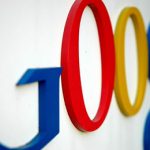
My second set of year-in-review retrospectives is 10 stories in disguise. The number is closer to 20, because I combined together the 7-part Chrome OS laptop review series into one. While I wrote fewer stories about Google than Microsoft, I found this list harder to create than the first one -- "10 for 2010: Microsoft stories that mattered."
These are 10 (OK, nearly 20) of my Google stories I believe that you should have read in 2010. You still have time! The stories are organized by importance, from least to most -- that is 10 to 1. I weighed importance based on relevance of the analysis to Google in 2010 and even in coming years. Not all readers will agree on which is more or less important, or perhaps not at all.
I don't need 10 reasons why Google TV will succeed
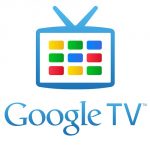
Three are enough: Search, advertising and Android. But if you need seven more: Google, Google, Google, Google, Google, Google, Google.
Last night, while reading news on my Nexus S, I came across this little ditty: "Google TV Is Failing: 10 Reasons Why," by freelancer Don Reisinger, writing for eWeek. Judging from Reisinger's eWeek profile, he seemingly only writes top-10 lists. His reasons appear to be sensible but lack depth regarding the consumer electronics industry, Google or television networks. Google is as committed to television as it is to mobile -- and look how well Chrome and Android are doing two years out of the gate.
2010 Technology of the year: Synchronization
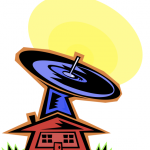
Apple's iPad surely doesn't deserve the designation, although some other news sites or blogs are giving it. Instead, sync is my choice as technology of 2010. Sync by far is the year's most useful and widely beneficial technology. Sync wasn't invented this year, but the technology reached a crescendo of usefulness -- anytime, anywhere and on anything.
I first started writing about the importance of content synchronization in 2003, arguing that the utility belonged in the operating system. In January 2004, I blogged for JupiterResearch: "Controlling synchronization at the platform level would help Microsoft protect its Windows monopoly." Microsoft planned to integrate sync into Windows Longhorn, but later pulled the plug. Apple brought sync into Mac OS X with limited utility and later to iOS, where it is much more useful. Google trumped both companies, by taking sync somewhere even more useful: To the cloud. Android and the Chrome browser sync to Google datacenters and back to software, quite marvelously. But sync's reach and utility go much farther than these three companies-- from Amazon Kindle to Facebook and beyond.
10 for 2010: Microsoft stories that mattered

It's that time of year when everybody who is anybody or nobody writes retrospectives. I start with Microsoft, by highlighting 10 of my stories you should have read in 2010. You've got time now during the end-of-year lull or even a week off before the New Year. They're organized by importance, from least to most -- that is 10 to 1.
I didn't easily choose just 10. I weighed importance based on relevance of the analysis to Microsoft in 2010 and even in coming years. Not all readers will agree on which is more or less important, or perhaps not at all.
First impressions: Google TV delights
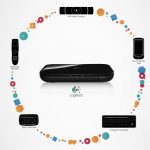
I simply don't understand all the fuss about Google TV delays. I set up the Logitech Revue on Christmas Eve and the family is absolutely loving it. Revue/Google TV delivers one of the best non-cable-provider set-top box experiences I've ever had testing these devices. In fact, setup and benefits make up for all the pain encountered with similar class products running other operating systems.
First the news that gets stranger: Following rumors that Google TV asked partners to pull their products from next month's Consumer Electronics Show, there's now buzz that Logitech has either suspended Revue production or shipments until Google releases a software update.
Talking about Microsoft Store
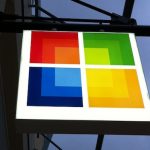
Last night, while walking around Fashion Valley Mall here in San Diego, I spent some time sizing up the Apple and Microsoft stores, which are just four shops apart. The Apple Store was busier, but I found the Microsoft Store to be more charming. More than any other time viewing the stores, I saw in Christmas shoppers dramatic differences in clientele.
Microsoft Store attracted a crowd, inside and outside the glass windows, as two teens frenetically danced using Xbox and the hands-free Kinect controller. Everyone was having fun. It was raucous with some cheering, a gravity well pulling passersby; I among them.
Please be our Ghost of Christmas Past or Future

It's two days to Christmas, and I'm mulling Christmas Past and Christmas Future (You are familiar with the Charles Dickens' classic tale, yes?) I request your participation. Like most other journalists or bloggers, I will post year-end retrospectives and year-ahead prognostications next week. I ask you to contribute. Choose your ghost and your Scrooge. What do you think were the most important events affecting the technology industry in 2010 -- and why? They don't have to be industry shaking, but merely important to you. What would you like to see next year from the tech companies that matter most to you?
I often crowdsource material for posts, but this request is different from others. Typically I ask readers to respond in comments and by e-mail (joewilcox at gmail dot com). The e-mail responses tend to be long and thoughtful, and I often feel guilty about not being able to use all the contents. I will ask some responders to this question for permission to post their entire response (or a good chunk of it) as a guest contributor. I'll edit your writing, and we can banter back and forth to get it just right. Other e-mail responses and those in comments to this post will go into stories I write about the year past and year ahead.
Earth to Microsoft: Two years to ARM is too late
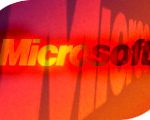
Machead John Gruber and I often don't agree on much. We've had some fairly public spats over the years, regarding Apple. But for once, we do agree on something. "This must be a mistake," he says about a report dated today from Wall Street Journal asserting that at next month's Consumer Electronics Show Microsoft will unveil a version of Windows for low-powered chips, "though it isn't expected to be available for two years." Two years? Two years is three years too late.
The rumor, first reported by Bloomberg, makes sense of others: That Microsoft would show off new Windows tablets at CES and preview Windows 8. Two years would be about right for Microsoft to release the next version of Windows. It also makes sense for Microsoft to broadly support ARM and other low-powered processors, particularly for devices like e-book readers, tablets and even smartphones. Microsoft announced a licensing agreement with ARM in July.
What's wrong with Google TV?
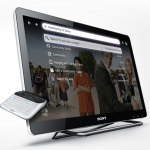
By measure of sheer punditry, rumors and competitor jocking, Google TV is dead on arrival. Hardly. But rumors -- hey, published in the mother of business reporting, the Wall Street Journal -- claim that Google has yanked the software (and, therefore, third-party hardware) from next month's Consumer Electronics Show. Meanwhile, today, Apple gave Google a noggie by announcing Apple TV shipments would reach 1 million units this week. Perhaps worse, Chip Trick is reporting a tempting last-minute holiday deal -- the Roku XDS for a cool 80 bucks. The cheapest Google TV device costs $300. Yeah, Google TV isn't having a good week, and it's only Tuesday!
Google TV has a future, despite all proclamations of its early death. Television is important to Google, because of advertising competition. According to research released this week by MagnaGlobal, US online ad revenue surpassed newspaper advertising in 2010, with projections of topping all print ad spending in 2014. But TV still tops all categories, and by considerable margin -- more than twice as much as Internet advertising, and that continues through MagnaGlobal's forecast period when in 2015 TV ad revenue will near $100 billion and online ad revenue tops $44 billion. Ad dollars aren't moving fast enough online for Google, with TV being the jewel the information giant needs to add to its advertising and search crown.
A week with Google's Chrome OS laptop, Day 7: Settling in for the long haul

On December 13th, I received from Google the unbranded Cr-48 laptop running Chrome OS, which I've been using and writing about for the last seven days. Whew, it has been quite the journey and not one that's over. I will continue using the Cr-48 as my primary computer through the end of December and quite likely much longer. I say primary, because testing Mac OS and Windows apps will require some time on the other operating systems. I'll be front and center looking at the Mac App Store, for example, when it launches on Jan. 6, 2011.
How much longer I can use Chrome OS for daily work (including Betanews writing) greatly depends on how quickly Adobe Flash is fixed to run right. Many of the Web services that replace my desktop apps require Flash, something I discover as things go wrong. While writing this post, for example, the Flash plugin crashed, pulling AIM Express offline and stopping Mog streaming. AIM Express replaces the IM client I used previously (and I will switch to an alternative Web service in the next day or so). AIM Express is a real hassle if the Net connection goes down or Flash crashes. There's no indication of a problem, unless I go to the tab and check -- and logging back in is a manual process (It's not automatic like the desktop client).
Joe's Bio
Joe Wilcox is BetaNews executive editor. His motto: Change the rules. Joe is a former CNET News staff writer, JupiterResearch senior analyst, and Ziff Davis Enterprise Microsoft Watch editor.
Ethics StatementBetaNews, your source for breaking tech news, reviews, and in-depth reporting since 1998.
© 1998-2025 BetaNews, Inc. All Rights Reserved. About Us - Privacy Policy - Cookie Policy - Sitemap.
